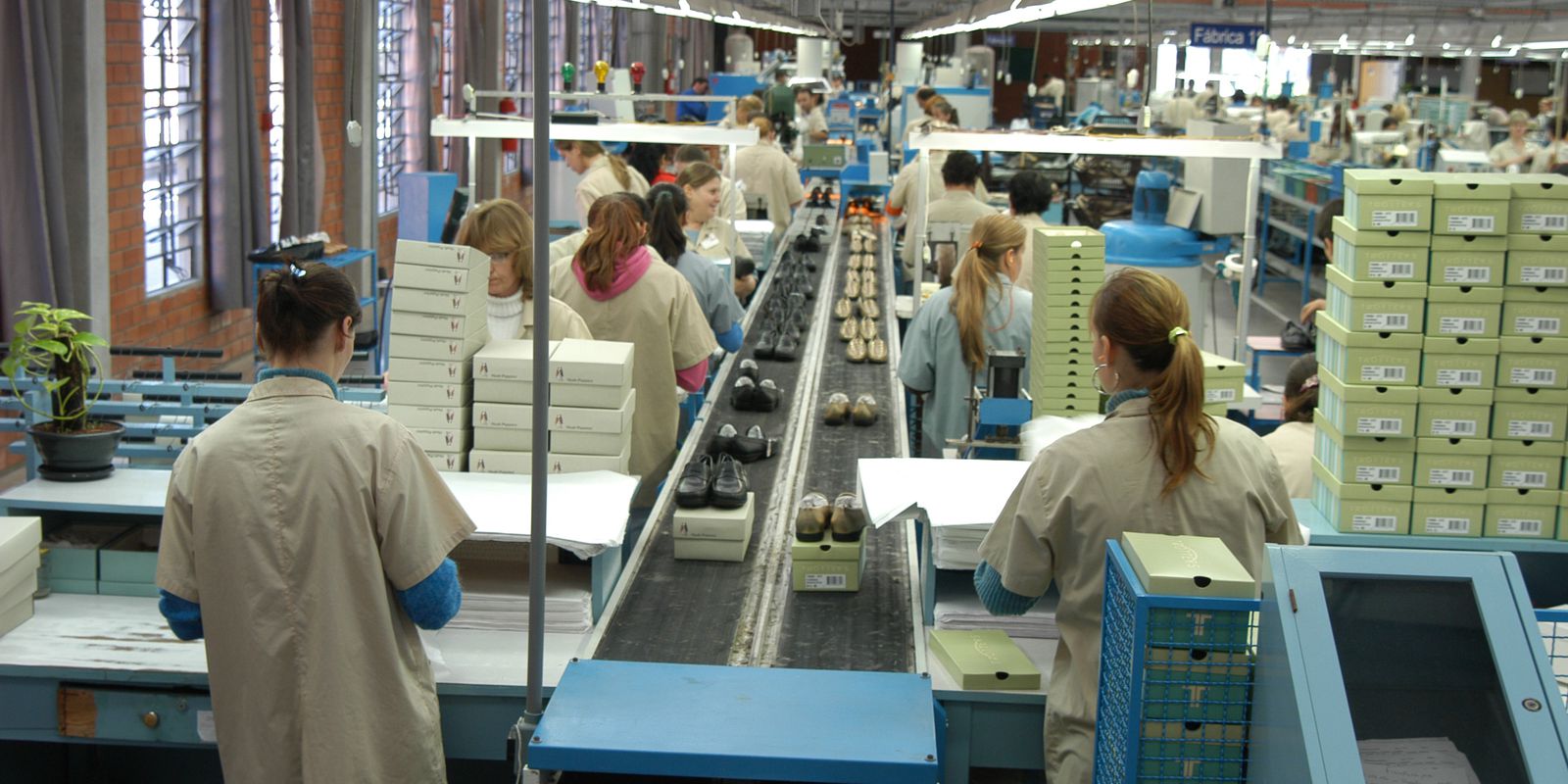After the frenetic meetings that began at 10 in the morning at the headquarters of the Congress in Santiago and continued until after 11:00 p.m. – which included the visit of Cristián Warnken, president of the party in formation Amarillos por Chile, near the 7:00 p.m.–, and President Gabriel Boric’s call to the political parties to reach an agreement this week, it was not possible to agree on an understanding regarding the constituent body, almost three months after the start of the meetings between the ruling party and the opposition .
Almost at midnight, the presidents of the ruling parties began to withdraw, just after the representatives of Amarillos and Democratas did so. The first to leave the third floor of the former Congress was the deputy and president of Social Convergence, Diego Ibáñez, who had to make his way through the journalists who were stationed at the entrance looking for a statement from him, since some negotiators from Chile Vamos who were present at the talks pointed him out as one of the causes of the failure to seal an agreement.
The extensive quote did not change the script. Again they did not arrive at port. However, the tension after more than thirteen hours of talks was greater than that of previous appointments. During the day, a coincidence had been reached between the axes: moving to a mixed body, which means that the constituent body is made up of experts appointed by Congress and by elected persons.
The knot was in the percentage that would make up said instance. The ruling party – which had already polled a 70-30 conformation on Monday with the right – had started its bet with 80% of elected people and 20% of experts and ended the day with a 75-32. While the opposition, which last Friday presented a 50-50 force conformation, lined up after the 70-36 percentage.
“We came the same for today’s photo,” Senators Francisco Chahuán (RN) and Álvaro Elizalde (PS) said to each other on Tuesday morning. “We are at a turning point this week”, they assured. However, comments were heard early on such as “if it is not today, it will be tomorrow, if it will not be the day after, but we hope it will be this week”.
The person who set the course for the talks was the PPD deputy and former president of the Lower House, Raúl Soto, when he said –in conversation with Radio Duneafter 7 in the morning – that “everything indicates that we are heading towards a mixed body where a majority proportion of elected people will be accompanied by a smaller proportion of experts to jointly proceed to draft the new Constitution.”
Regarding the percentage of the body, he explained that it was not yet “settled because precisely in the definition that we hope to make today we are going to see with what positions in numerical terms each of the parties arrives”, but he indicated a range: 70% elected and 30% experts or 80-20. In addition, he pointed out that the formula for the election or appointment of these experts was still under discussion. Upon reaching the former Congress, he said that it was necessary that “the proportion of elected people be considerably higher than that of experts.”
According to what they described from Chile Vamos, at one point during the day they were willing to open up to the possibility of advancing on the proposal that the left had sounded out on day one: 70 elected officials and 30 experts. However, they found out from the press about the proposal of the deputy of the Christian Democrats, Alberto Undurraga, who proposed a distribution of 70-36. As they explained close to the opposition negotiators, they could not appear accepting something worse than what was offered by the DC. “These proposals set a floor for you,” they stated.
They added that the signals were key, since later the party leaders had to negotiate with the benches at the time the agreement they reached was voted on.
The ruling party, which had started the day with an 80-20 score, ended up proposing a 75-32 score. It suited them – they specified – because the proportion of elected officials versus experts was higher in this mechanism than in the one proposed by the DC deputy.
Chahuán’s proposal that entangled the talks
From Chile Vamos, according to the negotiators, they asked Álvaro Elizalde (PS), president of the Senate, to resume the meetings at 1:30 p.m. until “total dispatch” – they were in recess. They asked that no block leave until an agreement was reached. This was not confirmed or ruled out from the left, who after the recess assured that they were in the mood to “advance as much as possible.”
Some who were in the talks this day pointed out that there was an episode that strained the talks. According to a member of the government alliance, at one of the tables set up during the day, in this case between Senators Francisco Chahuán (RN), Jorge Insunza (PPD) and Deputy Diego Ibáñez (CS), Senator Chahuán he would have informally proposed the possibility of holding an entry plebiscite to consult the public about the mechanism to develop a new Constitution.
From the ruling party, they detail that this idea was discussed until the decision to support it was reached, “because it allowed to ensure a 100% elected body,” they explained in reserve. However – according to the same sources – Chahuán would have removed the alternative from the table because he did not have support in his sector, a situation that got on the nerves of the left.
When Chahuán was consulted about this alternative, at the end of the series of negotiations, he affirmed that “there is no floor in the parties of Chile Vamos, neither in Democrats nor in Amarillos, for there to be an entry plebiscite (…). There is no need to look for arguments for not having reached agreements today, ”he said.
The strong hand of Diego Ibáñez
“Obfuscated” was the word that the opposition used to describe Diego Ibáñez, deputy and head of Social Convergence -the group of which President Boric is a part-, when he went down the stairs of the Senate sector in the former Congress, where they were together.
At first, he avoided giving answers to the press, but after insistence, while they followed him through Morandé, he explained that the negative result of the negotiations was a “lack of will on the part of the right to be able to open up to more democratic seats.”
He assured that a 100% elected body had been pushed, but that “the right has made us a mixed proposal and we are evaluating it with our parties, with our colleagues. We believe and insist that there must be the greatest capacity for democratically elected seats here.”
And it is that different leaders of the right indicated him as one of those who put limits on the talks, since they described that the deputy stated that, in order to advance in a mixed formula, he had to consult it with his bases and that for that reason he was not available to dispatch a deal this Tuesday.
The senator and president of the UDI, Javier Macaya, pointed out when leaving that he regretted that “a position that had a broad consensus at the table, which was to reach a mixed agreement, for a quite marginal difference and based on the inflexibility, particularly of the party of the President of the Republic, has not materialized”.
Meanwhile, the deputy and head of the Evópoli bench, Francisco Undurraga, described that “to the question about whether it was feasible for the forces representing the current government to reach an agreement today, the deputy Diego Ibáñez said that ‘no chance’ “.
The foregoing, because its community (CS) was one of the most intransigent around a 100% elected body on Monday and Tuesday. The first signal was a publication from the Social Convergence Twitter, where a photograph was shared with María José Hoffmann, Javier Macaya, Francisco Chahuán, Diego Schalper and Iván Moreira, with the phrase “democracy is built with choice, not with designation”. ”, and the description of the publication read: “Let’s not leave them in the hands of the same as always!”. Message that was poorly received on the right.
Consulted Ibáñez, he assured that “there are precisely, as the tweet indicates, those who want to designate those who draft the new Constitution by hand.”
The second signal was another tweet on the Social Convergence website this Tuesday at 3:00 p.m. that said “Editors and experts of the new Constitution must be elected by popular vote! Let us take care of our democracy and the principle of choosing the path that Chile needs”.
While, on Tuesday morning, the senator and president of the Democratic Revolution said that “neither the right nor we have the possibility of enabling a new constituent process approved by 4/7 in Congress, therefore, an agreement implies putting ourselves in a hybrid scenario between what they propose and what we propose”, Deputy Ibáñez stressed that they would fight “tirelessly so that they are not appointed and are elected”.
The speech of the head of Social Convergence was in line with what President Gabriel Boric proposed to his government alliance last Friday as a red line: a 100% elected body. To this were added the statements of the President on Saturday, when he pointed out that for his sector it was “important that this process have citizen legitimacy and that requires that the constituents be elected.”
In addition, this Tuesday Boric emphasized that it was important for the political parties to reach an agreement “this week” regarding the constituent process, to have “a new Fundamental Charter that grants stability and a new social pact to our country, and that is legitimate before the eyes of the citizenry.
Ibanez was not the only one. Deputies from the ruling party such as the socialist Juan Santana, the militant of Comunes Claudia Mix, and the communist Carmen Hertz came out to criticize the path of the talks leading to a mixed body.
Marco Velarde, the president of Comunes, said in an interview with Third that, if this mechanism was chosen, it should be validated via the party’s general council whether or not they attended the signing of the agreement. However, he contextualized that he believed that, since I Approve Dignity (Frente Amplio, Partido Comunista and Federación Regionalista Verde Social), they should reach an agreement, since there was “the obligation to have a new Constitution.”
Parity: another of the entanglements
“After the disarmament of the fundamental knots come the details,” pointed out one of the ruling party’s negotiators in the corridors of the former Congress. He was referring to the fact that, if an agreement is reached regarding the composition of the body and the role that the experts will have, there are other issues that must also be cut.
One of them – sources on both sides say – is already relatively closed: indigenous seats in the conformation of the constituent body. It has been proposed that they be in proportion to the number of people belonging to indigenous peoples who vote in the representative elections.
One in which there is more disagreement is that of parity. From the ruling party, it has been proposed to enshrine this principle both in the conformation of lists –that are, for example, with the same number of women as men, and ordered interspersed–, and that it is also applied in the conformation of the body. Part of the opposition does not agree with the second point.








